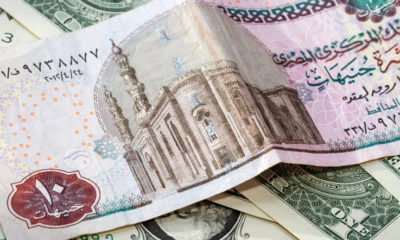With $20.1 billion in remittances in 2021, Nigeria was the second-highest recipient in Africa, trailing only Egypt ($28.3 billion). Although Egypt and Nigeria received over half of all remittances to Africa, the rise in inflows into Egypt remained robust, at double digits (16%), while growth in Nigeria slowed to 3%.
Remittances have proven to be positively correlated with the income of immigrants and economic conditions in the sending countries. The slow economic recovery and cost of living crises that confronted many developed economies in 2022 were indicative of this trend and constrained remittance flows into Nigeria.
This was further exacerbated by the implementation of capital controls and other unpopular policies by the Central Bank of Nigeria (CBN), which restricted inflows through official channels.
Remittances from the diaspora have played an increasingly essential role in Nigeria’s economy, serving as an important source of foreign exchange earnings and a catalyst for economic growth and development. As more Nigerians, discouraged by the country’s gloomy economic conditions, look overseas for opportunity, their remittances will continue to play, a crucial role in sustaining the Nigerian economy.
The growth of these funds has been exceptional, empowering dependents to meet their basic needs, pursue education, access healthcare, and embark on entrepreneurial endeavours.
Mass Emigration (Japa Wave) – A double-edged sword
Nigeria has been dealing with the challenge of emigration and brain drain for decades as a result of the rising number of people fleeing in search of greener pastures amid the country’s dim economic prospects. This growing trend in emigration has been informally tagged “Japa” – a Yoruba word that translates to “flee or run away”.
As more countries, particularly highly sought-after destinations, have become more welcoming of immigrants as a result of the global labour shortage experienced post-COVID-19, there are now more opportunities than ever for migrants seeking employment in environments with improved economic and living conditions.
However, this widespread exodus has left many businesses severely understaffed, which has stunted the expansion of a variety of industries and lowered tax revenues for the government. Nonetheless, remittances from the diaspora provide foreign exchange and capital injections to stimulate economic activity.
Remittances are also often utilised to support the livelihoods of dependents back home. Agusto & Co. believes that the surge in emigration witnessed in 2022 is yet to translate to a commensurate rise in remittances as the majority of the emigrants are students who will not be able to fully join the labour force in their host countries until mid-2023.
Increased Channels of Remitting Funds – Surge in Money Transfer Operators (MTO)
In recent years, the rapidly growing global adoption of mobile devices has driven the use of digital technology in remittance services and cross-border payments. COVID-induced movement restrictions have significantly amplified the utilisation of digital money transfer channels. It is estimated that in 2021, following lockdowns and border closures across the world, mobile phone payments spiked by 48%.
Furthermore, there has been a shift to Fintech MTOs, which provide users with a faster, more convenient, and cost-effective remittance experience. Traditional MTOs have begun to adjust to the new normal by building a hybrid structure. Agusto & Co. believes that this structure gives businesses an advantage by allowing them to benefit from the dependability and convenience of physical locations as well as the accessibility of digital solutions by having both a digital presence and a real address.
Outlook
Nigeria’s emigrant base is currently skewed towards the economically productive middle-class demographic, which is positive for remittances and underpins the need to devise strategies targeted at this age group to ensure the sustainability of remittances. However, given the significant contribution of students to the emigrating population, Agusto & Co. expects a surge in remittance inflows in the medium term.
In June 2023, the CBN liberalised the foreign exchange regime, doing away with market segmentation, collapsing all the segments into a single exchange rate window – Investors and Exporters (I & E) Window – and adopted a managed floating exchange rate regime.
We believe that the unification of exchange rates would also incentivise remittance inflows through official channels, particularly for investment purposes, as it is likely to improve the FX liquidity position, which would facilitate the repatriation of funds. Therefore, Agusto & Co. expects remittance flows into Nigeria to rise to about $26 billion by 2025.
This will be supported by improved economic conditions in advanced economies. Given Nigeria’s high poverty rate, which increases reliance on foreign aid, Agusto & Co. also anticipates that the need to finance the basic requirements of dependents to remain the most important element driving remittances in the near to medium term.


 Billionaire Watch3 weeks ago
Billionaire Watch3 weeks ago
 Startups4 weeks ago
Startups4 weeks ago
 News4 weeks ago
News4 weeks ago
 News4 weeks ago
News4 weeks ago
 Bitcoin4 weeks ago
Bitcoin4 weeks ago
 Naira4 weeks ago
Naira4 weeks ago
 Forex3 weeks ago
Forex3 weeks ago
 Treasury Bills4 weeks ago
Treasury Bills4 weeks ago






















